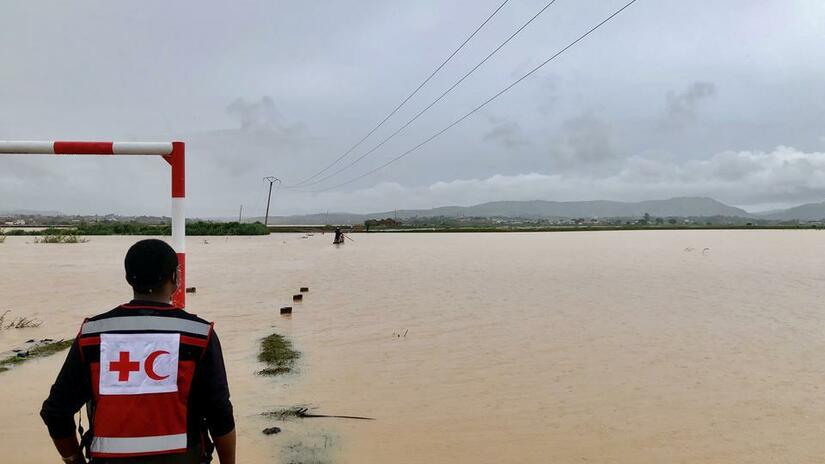Nairobi, Kenya. 17 February 2022 – As parts of Southern Africa are reeling from the impacts of tropical storms and cyclones and other parts of the continent are facing severe droughts, the International Federation of the Red Cross and Red Crescent Societies (IFRC) is calling for urgent investment in local action to combat the effects of climate change. The call comes ahead of the 6th European Union-African Union (EU-AU) Summit which gets underway today in Brussels, Belgium.
Recently, tropical storm Ana in Mozambique, Malawi, and Madagascar, and cyclone Batsirai in Madagascar again, left hundreds of thousands of people displaced, homes destroyed, and infrastructure worth billions of dollars damaged. At the same time, humanitarian organizations in Africa warned this week of a catastrophic hunger crisis in the Horn of Africa (Kenya, Somalia and Ethiopia) where more than 20 million people are feared to face starvation because of prolonged drought. The Sahel and West Africa, particularly Nigeria, also face a deteriorating food security situation.
Mohammed Mukhier, the Regional Director for IFRC Africa said:
“What we are witnessing is a manifestation of the impact of climate change on the continent. We need to strengthen investments in local preventative measures that build people’s ability to cope with these intensifying disasters.”
Countries in Africa are only responsible for four per cent of global carbon emissions, and at the same time disproportionately affected by the widespread consequences of climate change and accelerated environmental degradation. Yet, climate financing pledged by world leaders is slow to reach the people on the ground who are most exposed to climate risks.
Ahead of the Summit, the IFRC calls for renewed efforts to build and implement a new Africa-EU Partnership that would answer to the needs of the most vulnerable people exposed to the impacts of climate change and the environmental crisis, strengthen food and health security and address forced migration. In the longer term, the role of local actors should be strengthened to support communities in building resilience and addressing humanitarian and development challenges on the continent.
Communities in Africa and elsewhere are also increasingly impacted by multiple hazards in addition to the changing climate, which are compounding their vulnerabilities and affecting their capacity to cope.
“Communities can hardly recover before they are hit by another disaster. Madagascar is a case in point where we saw a devastating drought last year, and before those effects could be relieved, some of those same communities have been impacted by cyclone Batsirai recently.” said Andoniaina Ratsimamanga, Secretary-General of the Malagasy Red Cross Society.
To support countries to cope, there is an urgent need to address underlying vulnerabilities in communities, including poverty and marginalization, and providing support to those most exposed to the impacts of climate change. At the same time, there is incredible potential that lies within the African continent to address these challenges, including innovative approaches by young people and women to issues such as land restoration and the use of digital platforms.
For more information, or to request an interview, please contact:
-
In Nairobi: Euloge Ishimwe, +254 735 437 906, [email protected]
-
In South Africa: Thandie Mwape, +27 66 486 8455, [email protected]

